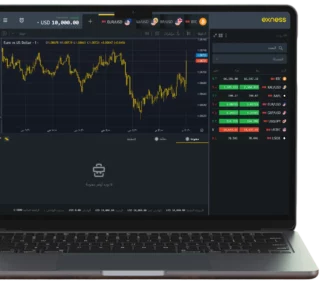Introduction to Automated Trading Systems and Expert Advisors (EAs)
Automated trading involves using software programs, known as Expert Advisors (EAs), to carry out trading decisions on behalf of the trader. These EAs are built on algorithms that analyze market conditions and execute trades without manual intervention.
How to Set Up and Use Automated Trading Strategies with Exness Platforms
Setting up automated trading on Exness is straightforward. Here’s a quick guide:
- Choose Your Trading Platform: First, download and install MetaTrader 4 or MetaTrader 5 on your device. Both platforms support EAs.
- Select or Create an Expert Advisor: You can either download an EA from the MetaTrader marketplace or create your own using the platform’s scripting language, MQL4 or MQL5.
- Install the EA: Once you’ve chosen your EA, install it in the platform’s “Experts” folder. Ensure it’s activated in the trading options of the platform.
- Set Parameters: Customize the EA settings to match your trading strategy. These might include risk levels, trade size, and specific indicators the EA should use.
- Monitor and Adjust: After activation, monitor the automated trades and adjust parameters if necessary to improve performance. EAs work continuously, even when you’re away from the screen.
Pros and Cons of Automated Trading
Pros:
- Emotion-Free Trading: Automated trading eliminates emotional decision-making, which can lead to impulsive or irrational trades. EAs follow set rules, ensuring consistency and discipline.
- Efficiency: EAs can operate 24/7, executing trades even when the trader is not available. This allows for greater flexibility, especially in fast-moving markets.
- Backtesting: Traders can test their automated strategies against historical data to evaluate their effectiveness before going live, helping to refine strategies and reduce risks.
- Speed: Automated systems can execute trades within milliseconds, capitalizing on opportunities that manual traders might miss.
Cons:
- Technical Issues: Automated trading depends heavily on technology, and any software glitches, connectivity issues, or platform downtime can disrupt trading.
- Over-Reliance: Traders may become too reliant on automated systems, potentially overlooking market conditions or failing to adapt to changing environments.
- Limited Flexibility: While EAs can handle a wide range of strategies, they may struggle with unpredictable market events that require human intervention or complex decision-making.
When It’s the Right Choice for a Trader
Automated trading can be particularly beneficial for traders who:
- Lack Time: If you can’t monitor the market constantly, an EA can manage your trades while you focus on other tasks.
- Seek Consistency: For traders who want to stick to a strict trading plan without emotional interference, automated systems offer a disciplined approach.
- Have a Proven Strategy: If you have a well-tested strategy that works in different market conditions, automating it can save time and improve efficiency.



